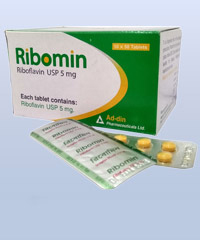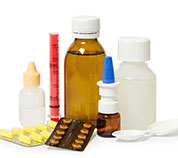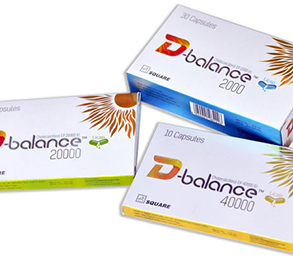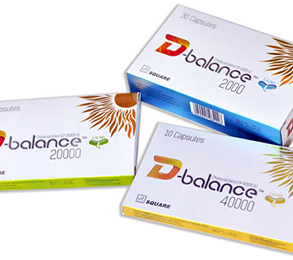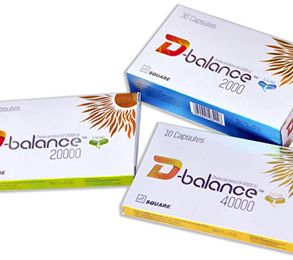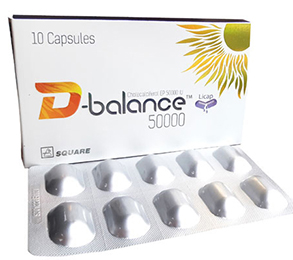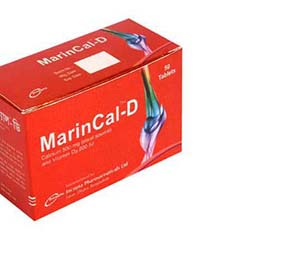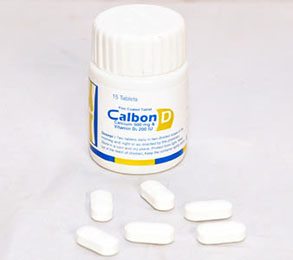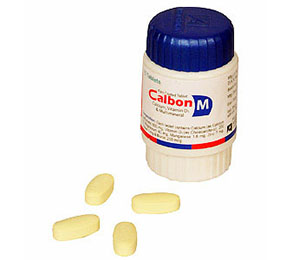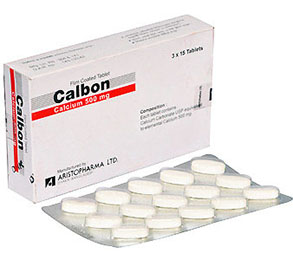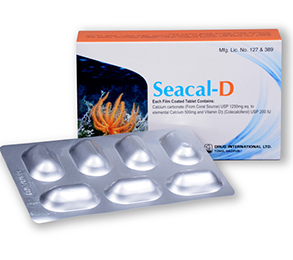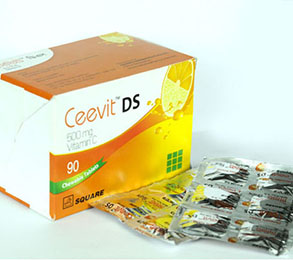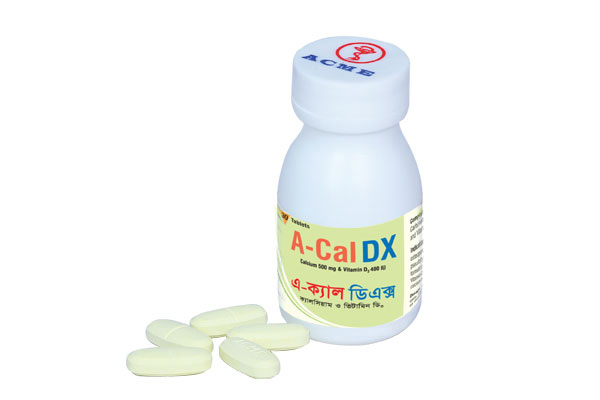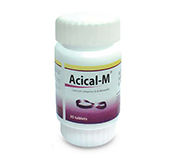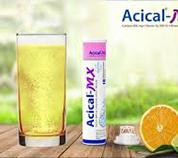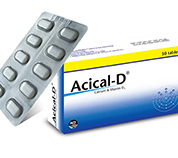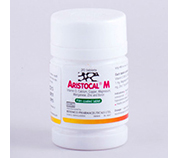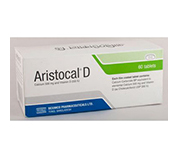Ribomin Tablet5 mg 1 Pcs
Alternative products
Riboflavin
Indications
To prevent and to treat deficiencies of vitamin B2 such as cheilosis, angular stomatitis, glossitis, keratitis, seborrhoeic dermatitis.
Pharmacology
Riboflavin or vitamin B2 is an easily absorbed, water-soluble micronutrient with a key role in maintaining human health. Like the other B vitamins, it supports energy production by aiding in the metabolising of fats, carbohydrates, and proteins. Vitamin B2 is also required for red blood cell formation and respiration, antibody production, and for regulating human growth and reproduction. It is essential for healthy skin, nails, hair growth and general good health, including regulating thyroid activity. Riboflavin also helps in the prevention or treatment of many types of eye disorders, including some cases of cataracts.
Binds to riboflavin hydrogenase, riboflavin kinase, and riboflavin synthase. Riboflavin is the precursor of flavin mononucleotide (FMN, riboflavin monophosphate) and flavin adenine dinucleotide (FAD). The antioxidant activity of riboflavin is principally derived from its role as a precursor of FAD and the role of this cofactor in the production of the antioxidant reduced glutathione. Reduced glutathione is the cofactor of the selenium-containing glutathione peroxidases among other things. The glutathione peroxidases are major antioxidant enzymes. Reduced glutathione is generated by the FAD-containing enzyme glutathione reductase.
Dosage & Administration
For treating low levels of riboflavin (riboflavin deficiency) in adults: 5-30 mg of riboflavin daily in divided doses.
For preventing migraine headaches: 400 mg of riboflavin (Vitamin B2) per day. It may take up to three months to get best results.
For preventing cataracts: approximately 2.6 mg of riboflavin (Vitamin B2)
* চিকিৎসকের পরামর্শ মোতাবেক ঔষধ সেবন করুন'
Interaction
Drying medications (Anticholinergic drugs), Medications for depression (Tricyclic antidepressants), Phenobarbital, Probenecid.
Contraindications
Hypersensitivity to Riboflavin.
Side Effects
Riboflavin is likely safe for most people. In some people, Riboflavin can cause the urine to turn a yellow- orange color. When taken in high doses, Riboflavin might cause diarrhea, an increase in urine, and other side effects.
Pregnancy & Lactation
Riboflavin is likely safe for pregnant or breastfeeding women when taken in the amounts recommended.
Precautions & Warnings
Riboflavin is non-toxic. No warnings or precautions have been established .
Therapeutic Class
Vitamin-B preparations
Storage Conditions
Store at a cool and dry place. Protect from light.
- Type Tablet
- Tag
- Morbi leo risus
- Porta ac consectetur ac
- Vestibulum at eros
